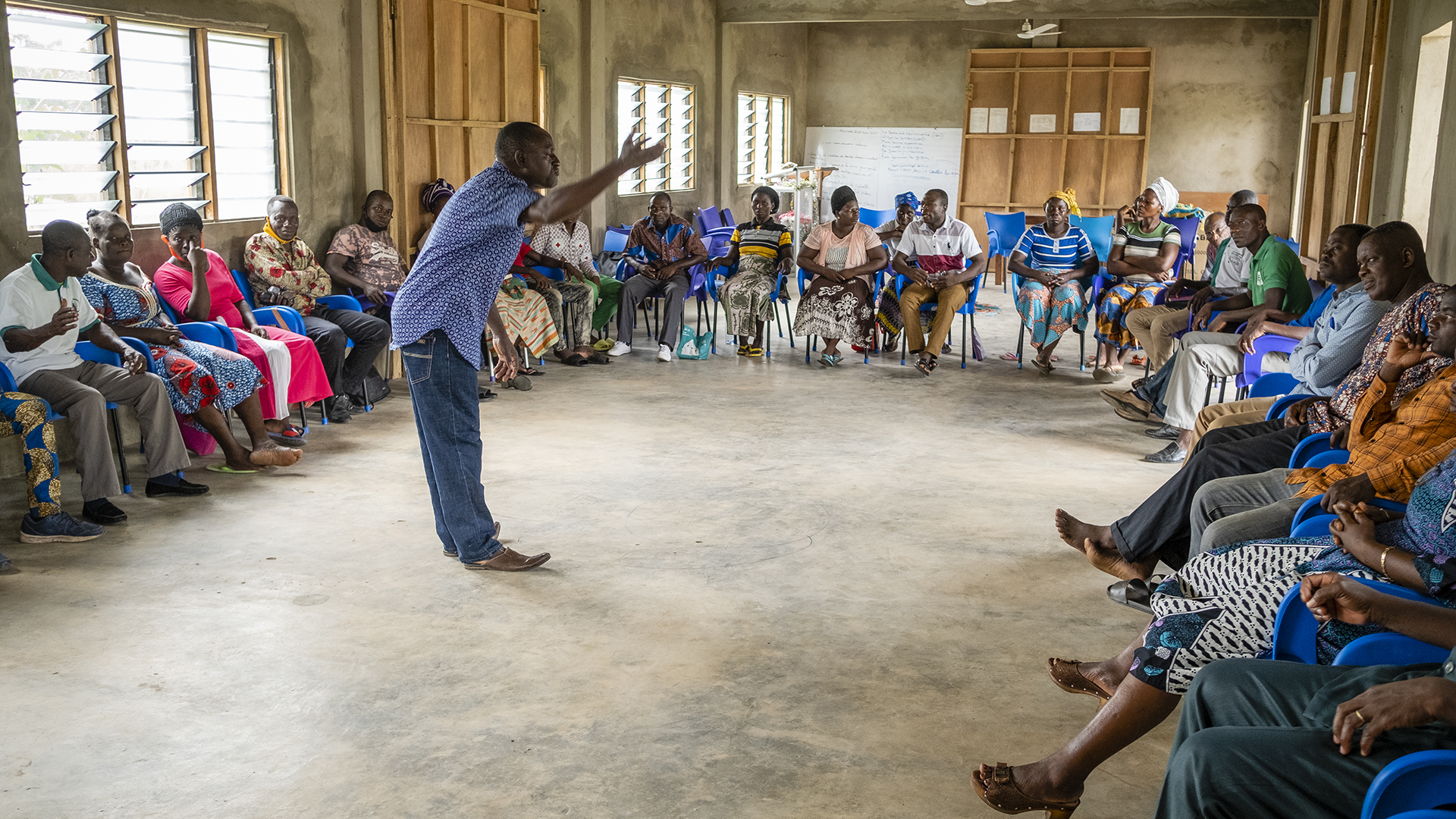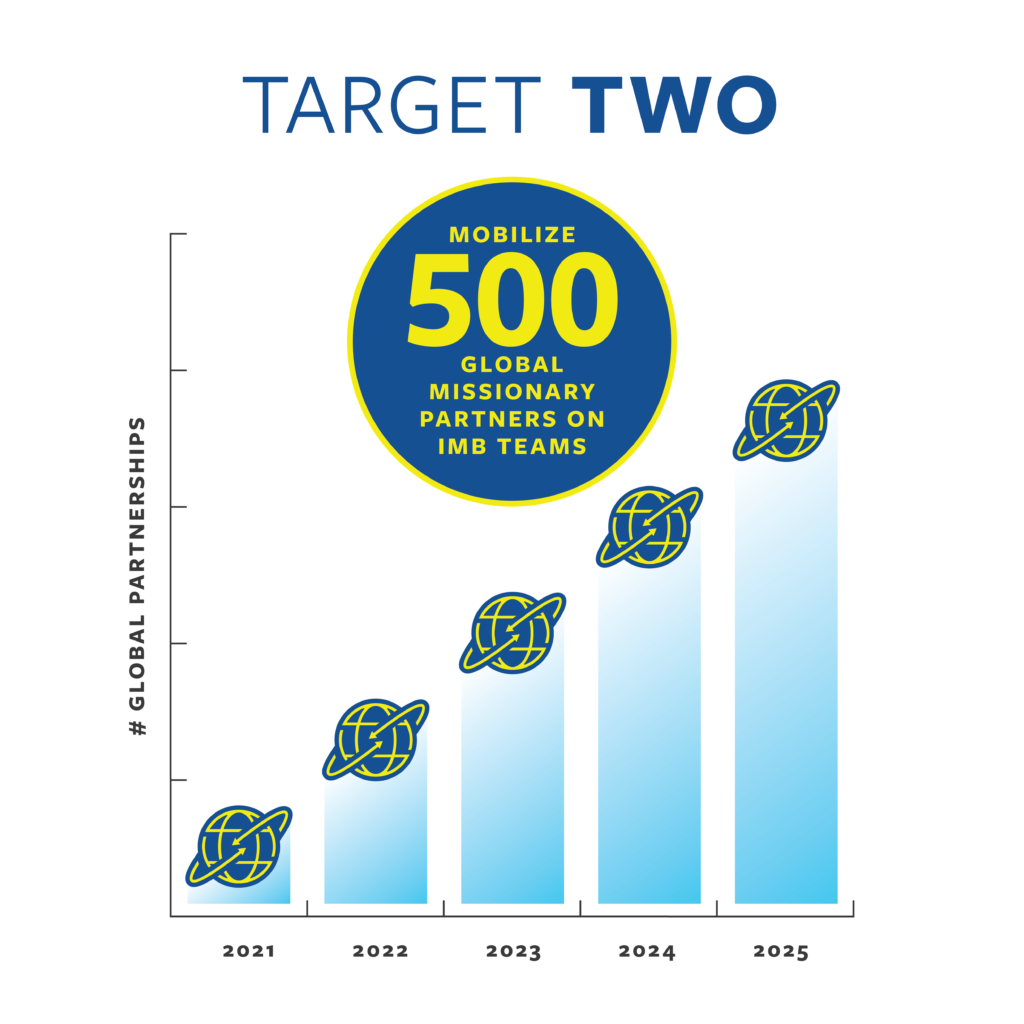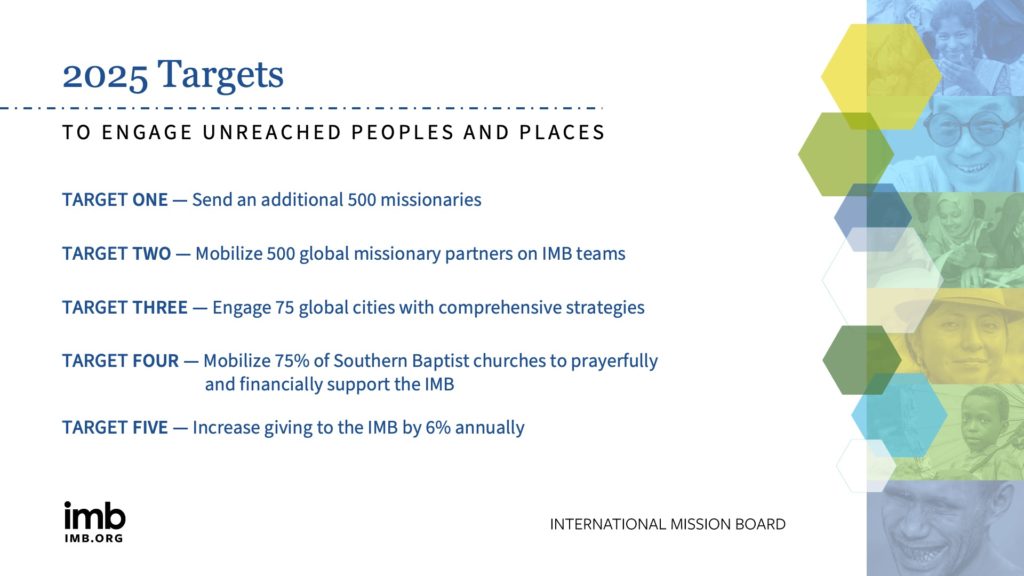The Great Commission wasn’t just given to Southern Baptists or the church in the United States. It was given to the global Church. And if the global Church is to be effective in reaching the 155,473 people who die daily without Christ, it must seek out partnerships beyond the borders of the U.S., Amanda Dimperio, director of Globalization for the International Mission Board explained.
This reality is the impetus for the IMB’s 2025 Targets which includes to “mobilize 500 global missionary partners on IMB teams.” Global mobilization is crucial to the Revelation 7:9 vision, according to these statistics.

IMB defines a global missionary partner (GMP) as a national church partner based overseas who is fully funded through a church, a network of churches or Baptist convention. He or she serves on and with an existing IMB team.
“There are 140 Baptist conventions and unions around the world that our researchers have been able to locate,” IMB President Paul Chitwood said. “They are the fruit that remains from 175 years of work. We want to work with those partners and help them send their own missionaries.”
Chitwood continued, “By strategically inviting and involving 500 global missionaries to work alongside IMB teams, we believe we can help push forward not only the task, but the globalization of the task. This is critical for us moving forward.”
These GMPs bring value to the IMB’s existing efforts in many ways. For example, they can often gain access to places someone with a passport from the U.S. can’t.
Additionally, a GMP can reach people of a similar culture in an urban setting that is often more difficult for a missionary from the U.S. A GMP from Korea can assimilate into the Korean Mexican culture in Mexico City with relative ease, thereby effectively ministering to someone in that setting.
As the IMB continues to seek global partnerships, IMB teams also learn from their partners, Dimperio explained.
She added, “We don’t know everything there is to know about how to plant churches in some of these places. So partnering with them will teach us how to be better multicultural team players.”
Zane Pratt, the IMB’s vice president for global training, shared, “Mobilizing a globalized missionary force, teaching the biblical imperative of global missions at every stage, and equipping our national partners to develop mechanisms for sending laborers all over the world, is an essential element to the [missionary]-task.”
According to MissionNexus’s 2018 report, in 1977, most of the mission force was sent into the world through North America. Europe sent the next highest amount, and a very small percentage was sent out by the majority of the world. By 2017 that shifted, and the missions force was overwhelmingly coming from other regions with North America being the second largest sender and a largely secularized Europe sending out a very small percentage.
These partnerships are mutually beneficial, because the GMP, although fully funded through their sending agency, has access to the IMB’s infrastructure of support. The GMPs may be provided logistical support, counseling and emotional care, educational resources for their children, language learning resources, and practical support like finding housing and transportation.
“We can lend our robust support infrastructure to partner organizations until they develop the resources to provide these services for their workers. Training partner support personnel is part of the strategy to expand their capacity to send and support missionaries,” says Dimperio.
They’re connected with a team and an established work, equipping them as they carry the gospel to the ends of the earth.
 GMPs at work
GMPs at work
The Beta* tribe in Southeast Asia was once hostile to the gospel. Missionaries shared the gospel with this headhunting tribe, and God worked miracles. Now, this tribe has partnered with and been mobilized by IMB missionaries to reach other unreached tribal groups. So far, 21 tribal missionaries have been sent out, and their goal is to replicate this model among unengaged, unreached people groups.
In 2016, Rose was sent from her church in Mexico to reach people in a North African country. Through the support of the IMB team, Rose received comfort and care as she faced the family tragedy of her brother-in-law’s murder, while she simultaneously battled COVID-19. Language learning expenses and practical training also helped her in her ministry. She’s effectively discipling Muslim background believers.
A partnership in the Philippines has equipped Adrian* to work among an unreached Muslim people group in a neighboring country. Alongside his IMB teammates, he’s seeing fruit of his labor after many years of sowing.
“The end isn’t going to come until all the nations have heard,” Dimperio explained. And in order to see the Great Commission fulfilled, believers must go out “from everywhere to everywhere.
“God expects everyone to have a part. We can help mobilize.”
You can help fund a GMP’s training and mobilization through your gifts to the Sending Global Missionary Partners giving project.
*Names changed for security


